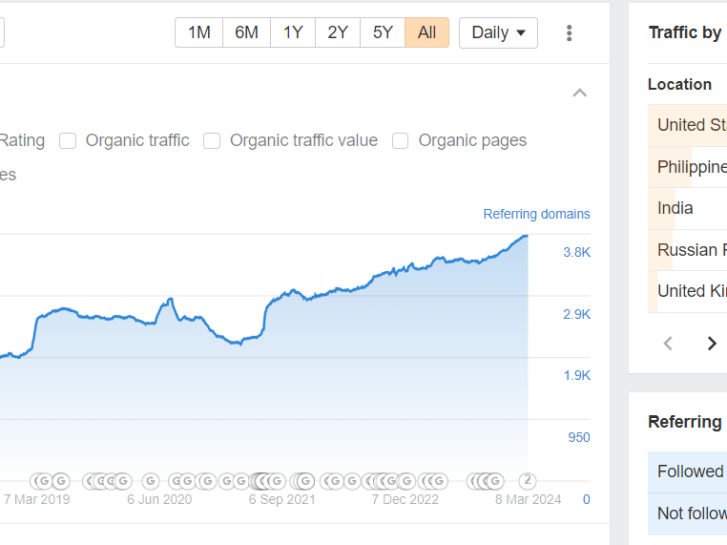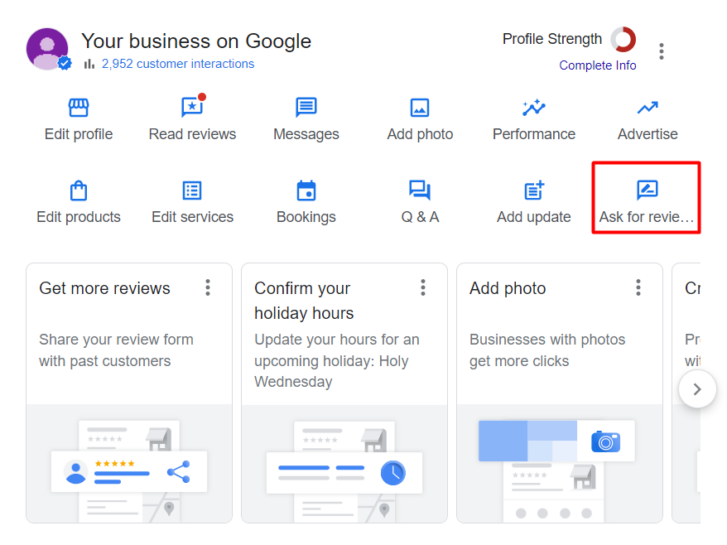The Comprehensive Off-Page Checklist to Boost Your SEO in 2025
 When it comes to ranking on Google, the work you do on your website is only half the job — the rest comes down to your off-page SEO strategy. Building your off-site presence can make all the difference in traffic, search engine rankings and revenue.
When it comes to ranking on Google, the work you do on your website is only half the job — the rest comes down to your off-page SEO strategy. Building your off-site presence can make all the difference in traffic, search engine rankings and revenue.
Searching for an off-page SEO checklist to help your site rank higher in Google? You’re in luck. I have here a simple yet effective list for you to work through — complete with all the best practices as of 2024.
Off-Page SEO Factors
Your biggest competitors have probably perfected their on-page SEO. It’s highly competitive, too. It’s why businesses invest in services like ours, and why others build their own in-house team to optimize their websites. So how do you get a leg up on the competition? The answer is off-page SEO.
All things equal — content, UI/UX, site speed, all on-page factors — what sets one website apart from the others is how authoritative they are in its niche. To build authority, you need to show Google that other websites and industry leaders trust you. And what do we do when we trust a source of information? We reference it and link back to it in our writing. See where I’m getting at?
Think of each external link as an endorsement for your site, encouraging search engines to boost your position in their rankings. If you want to succeed this 2024, then you have to start investing in your off-page SEO.
Webmaster’s Note: This is part three of our SEO checklist series. Part one covers our technical SEO checklist and part two covers on-page SEO. Take a look at those if you haven’t seen them yet.
1. Link Building
The core aspect of off-page SEO. Link building is the process of getting more hyperlinks (also just called a “link”) from other websites to your own.
Key Strategies of Link Building:
- Content Creation & Promotion: Create high-quality content that people want to link to because it is valuable. Use this to get links organically from other webmasters.
- Backlink Outreach: Contacting relevant, authoritative websites and influencers in your niche to introduce your content and secure backlinks. Here are four ways to successfully pitch your outreach to other webmasters.
- Guest Blogging: Do outreach right, and you’ll get the opportunity to write articles for other reputable websites. This can result in a backlink to your site. Here’s a separate guide on how to effectively guest blog.
- Broken Link Building: Identifying broken links on other websites and suggesting your content as a replacement. I have a broken link building tutorial for beginners for you to follow for this step.
- Link Intersect Analysis: You can also steal links from the competition. Check your direct competitors, and other websites who often create content to rank for the same keywords as you do. From here, examine how they built and earned their backlinks using a tool like Ahrefs.
All these steps are needed to start building a robust profile of high-quality backlinks. Over time, this should signal to search engines that your website is an authoritative source worth ranking well.
2. Social Media Presence
I highly recommend being active on social media. Building a strong presence on other platforms can also build your website’s reputation.
Social media in this case is especially effective because everyone is on it, and there’s a space for everything. Find the right circle to start interacting with, and soon you’ll build an audience you can share your website’s content. And, the more active you are, the more likely you’ll be front of mind when someone looks at your industry.
How to Start Building Your Social Media Presence:
- Create a profile: I suggest making a professional profile either representing you or your business.
- Find your niche: Know who your industry leaders are, and find and follow their profiles on social media platforms. This is your entry point.
- Interact and engage: Try interacting with their posts, replying to discussions in their comment section, or reposting their content with your insights. This will expose you to others in their circle.
- Promote your content: If you’re already promoting all of your content across social media, then you’re off to a great start. You can also boost your profile’s engagement by interacting with every mention of your products, services, or business.
- Monitor topics: Keep track of hashtags related to your niche. Make sure to engage with these trends or discussions at every opportunity.
3. Forum Activity
Like social media, forums are also an excellent way to get noticed in your industry. Plus, any link you gain from forum activity can be an excellent source of referral traffic.
The strategy for forums is more or less the same as that of social media — create a professional account, find relevant forum threads, situate yourself there, and engage in discussions with others.
For the best results, I recommend only posting or replying when you have something valuable to contribute. Spamming forums for the sake of being active is just a waste of your time.
4. Online Reputation and Reviews
An important but often forgotten part of an off-page SEO checklist. A complete business listing on Google is a must to boost your local SEO. I highly recommend claiming or creating a Google My Business account.
How to Get More Business Reviews:
- Create a Google My Business Account: this is the first step if you don’t have one yet.
- Provide information: Fill out all the relevant fields for your business information. Don’t forget to link your website and social media profiles to your listing.
- Get verified: Make sure your account is verified so that you can keep all your information up to date, and moderate your account properly.
- Use your reviews link: From your Google My Business Dashboard, go to your profile. You should see the option to “Ask for Reviews” there. This will provide a link that leads straight to your reviews page — give this to every satisfied customer to grow your reputation on Google!
Key Takeaway
When it comes to optimizing your website for search, you can’t forget about your off-page SEO checklist. It’s invaluable in boosting your site’s authority — which we all know to be a strong ranking factor for Google. Follow my guide to gain some valuable external links, build your reputation, gain referral traffic and engagement, and raise your profile online.

